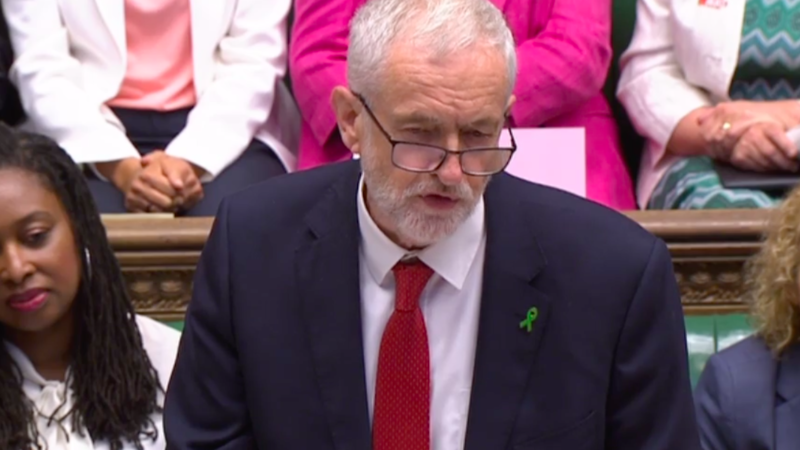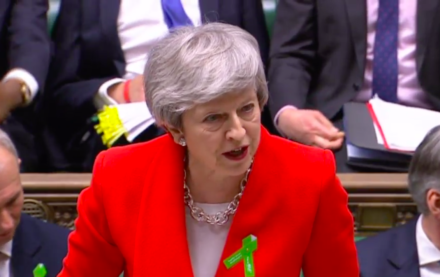
At the launch of Labour’s European election campaign, Jeremy Corbyn told his audience that a few weeks ago he decided to stop asking about Brexit at PMQs and “thousands of people said thank you”. Instead, he would question the Prime Minister on austerity – council budget cuts, social mobility, life expectancy, generally her failure to tackle the “burning injustices” that she promised to address in 2017. The Labour leader hasn’t made Brexit a key topic in any of his weekly head-to-heads since almost two months ago.
It was no surprise that Corbyn didn’t opt for Brexit today then, even though he held talks with the PM last night and the government has newly announced that the withdrawal agreement bill will be brought to the Commons in June. With the Tory benches once again particularly sparse, the Labour leader chose to go on the theme of ‘for the many not the few’. Although the slogan is also being used for the Euro elections, none of those manifesto policies were raised (perhaps they will get an airing next week, the day before recess begins). Corbyn’s sole focus was domestic.
“In the last two years, nine of the UK’s richest hedge fund tycoons have donated £2.9m to the Conservative Party,” he pointed out. “Is this a government for the many or in the pockets of an elite few?” This set the tone for the rest of the session, which could well have been mistaken for a pre-general election PMQs. Armed with quotes from economist Sir Angus Deaton, who this week warned that the UK’s vast pay, wealth and health inequalities were “making a mockery of democracy”, Corbyn hit the government hard on its economic record.
The Labour leader took the opportunity to promote his big policy announcement from last weekend, when he used a Young Labour event to reveal that the party would extend the real living wage of £10 an hour to under-18s. “If you’re old enough to do the job, you’re old enough to be paid the wage to do the job. Does the Prime Minister agree with that principle?” Of course, May’s reply confirmed she didn’t, as she argued that abolishing the ‘youth rate’ of minimum wage would cost young people jobs – the same bad argument peddled by the Conservatives when Labour introduced the NMW in 1998.
The Prime Minister point-blank refused to answer the following pertinent questions. And no wonder. Corbyn raised the genuinely shocking cases of a food bank being set up for schoolchildren in Great Yarmouth (represented in parliament by Tory chair Brandon Lewis) and another established by PCS union in a government department. Unable to mount a defence, May simply repeated that it is important for people to be in work, ignoring rising in-work poverty as usual.
“This country is seeing the rich get richer while the poor get poorer, while the government is in the pockets of a super rich elite,” Corbyn concluded. “More children in poverty. More pensioners in poverty. More people struggling to make ends meet. When is the government going to reverse the tax giveaway to the super rich and end the scandal of inequality in modern Britain?” A good rehearsal for the next general election campaign.




More from LabourList
Government announce SEND reform in schools white paper
SPONSORED: ‘Industrial hemp and the challenge of turning Labour’s priorities into practice’
‘A day is a long time in politics, so we need ‘action this day’’